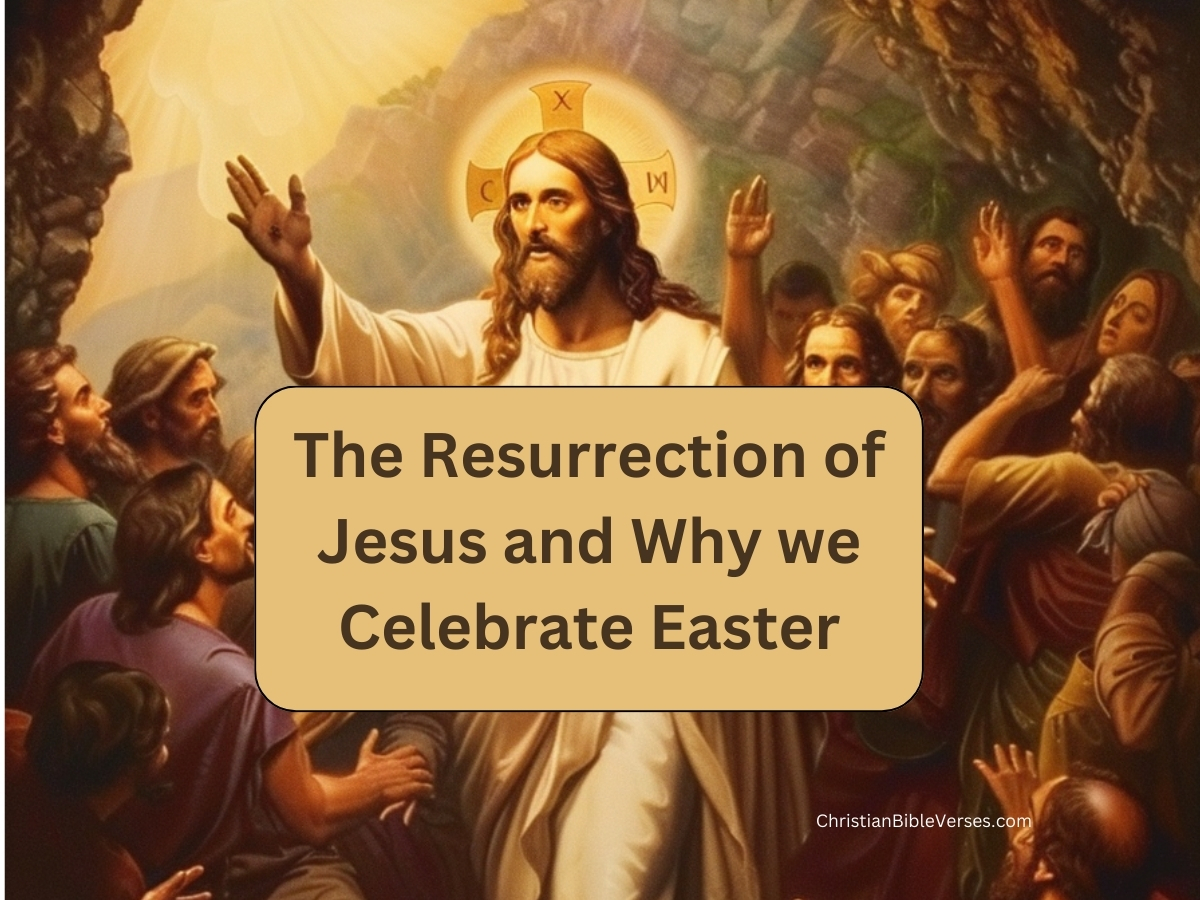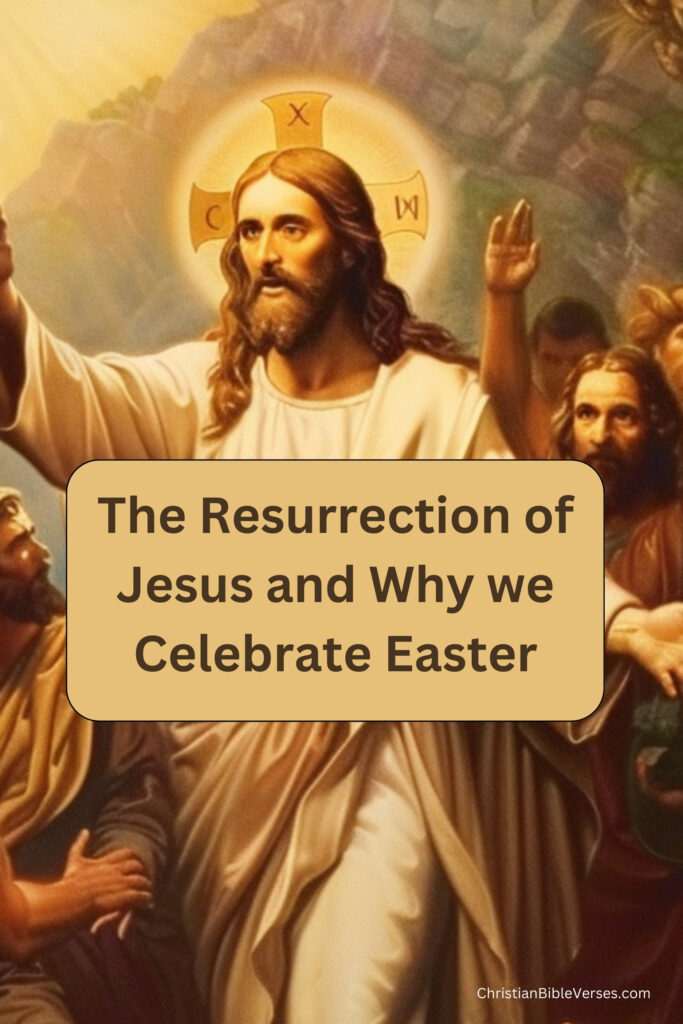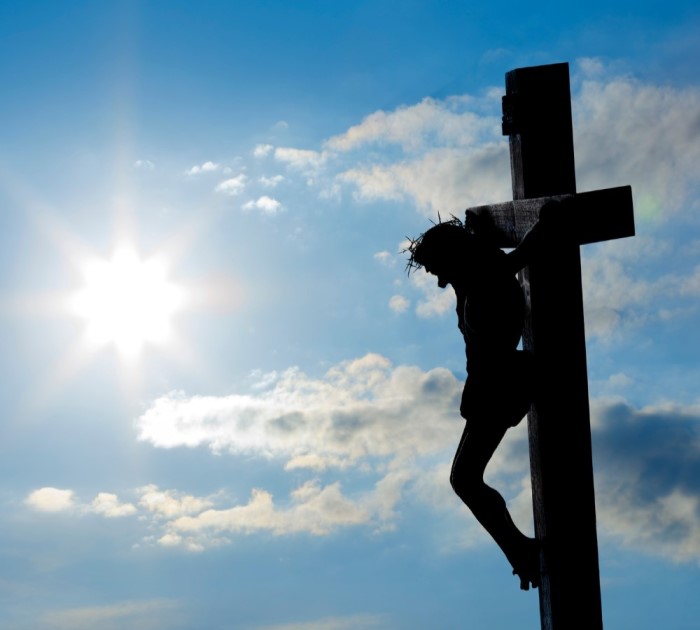Easter and The Historical Significance of Jesus’ Resurrection

Easter is a significant holiday in the Christian faith, commemorating the resurrection of Jesus Christ from the dead. It is celebrated on the first Sunday following the first full moon after the vernal equinox. The resurrection of Jesus is the cornerstone of the Christian faith, and it holds immense historical importance.
The resurrection of Jesus Christ is a central doctrine of the Christian faith. It is believed that Jesus was crucified, died, and was buried, and on the third day, he rose from the dead. This event is seen as a triumph over death and sin, and it holds immense theological significance. It is believed that through his death and resurrection, Jesus made it possible for humanity to be reconciled with God and to have eternal life. The resurrection of Jesus is considered a miracle and a testament to his divine nature, and it is celebrated by Christians all over the world.
Historical Context of Easter
Jewish Passover and Its Significance
Easter is a Christian holiday that celebrates the resurrection of Jesus Christ. However, the origins of Easter can be traced back to the Jewish holiday of Passover. Passover commemorates the Israelites’ liberation from slavery in Egypt. According to the Bible, Jesus was crucified during the week of Passover, which is why the two holidays are closely connected.
Passover is a time of remembrance and celebration for the Jewish people. It is a time to reflect on their history and their relationship with God. The Passover Seder, a ritual meal, is an important part of the holiday. During the Seder, the story of the Israelites’ exodus from Egypt is retold, and special foods are eaten to symbolize various aspects of the story.
Roman Rule and Religious Tensions
The historical context of Easter also includes the political and social climate of the time. During the time of Jesus, the region of Judea was under Roman rule. The Jewish people were subject to Roman laws and taxes, which caused tension and resentment.
Religious tensions were also high during this time. The Jewish leaders were threatened by Jesus’ teachings and popularity, and they saw him as a threat to their authority. This ultimately led to Jesus’ arrest and crucifixion.
The events surrounding Jesus’ death and resurrection were significant not only for Christians but also for the Jewish people and the Roman Empire. The historical context of Easter provides a deeper understanding of the holiday’s significance and the impact it had on the world.
The Resurrection Narrative
Biblical Account of the Resurrection
According to the Bible, Jesus was crucified and buried in a tomb. On the third day after his death, some women went to the tomb to anoint his body with spices. However, they found the tomb empty and were told by angels that Jesus had risen from the dead. Later, Jesus appeared to his disciples and many others, showing them that he was truly alive.
The resurrection of Jesus is considered by many Christians to be the most important event in human history. It is seen as proof of Jesus’ divinity and his power over death.
Post-Resurrection Appearances
After his resurrection, Jesus appeared to many people, including his disciples and others who had known him before his death. These appearances are described in the Bible and are considered to be evidence of the reality of the resurrection.
One of the most famous post-resurrection appearances is the story of Doubting Thomas. Thomas, one of Jesus’ disciples, did not believe that Jesus had risen from the dead until he saw him with his own eyes and touched his wounds.
The post-resurrection appearances of Jesus are an important part of the Christian faith. They show that Jesus was truly alive after his death and that he was able to appear to his followers in a physical form.
Theological Implications
Doctrine of Salvation
The resurrection of Jesus Christ is a fundamental doctrine of the Christian faith. According to Christian theology, the death and resurrection of Jesus Christ are the central events in the history of salvation. The resurrection of Jesus Christ is considered to be the ultimate proof of his divinity and his victory over sin and death. Christians believe that through his death and resurrection, Jesus Christ has made it possible for human beings to be reconciled to God and to receive salvation.
Concept of Eternal Life
The resurrection of Jesus Christ also has significant implications for the concept of eternal life. According to Christian theology, the resurrection of Jesus Christ is a sign of the resurrection of all human beings at the end of time. Christians believe that through his resurrection, Jesus Christ has conquered death and has opened the way to eternal life for all who believe in him. This concept of eternal life is central to the Christian faith and is a source of hope and comfort for believers.
Overall, the theological implications of Jesus’ resurrection are profound and far-reaching. The doctrine of salvation and the concept of eternal life are just two examples of the many ways in which the resurrection of Jesus Christ has shaped Christian theology and practice over the centuries. For Christians, the resurrection of Jesus Christ is a powerful reminder of God’s love and mercy, and a source of hope and inspiration for all who seek to follow him.
Historical Evidence and Scholarly Views
Historical Documents and Sources
The historical evidence for the resurrection of Jesus Christ is primarily based on accounts found in the New Testament of the Bible. The four Gospels of Matthew, Mark, Luke, and John provide detailed descriptions of the events leading up to and following the resurrection. Additionally, the letters of the apostles, particularly Paul’s letters to the Corinthians, contain references to the resurrection.
Apart from the Bible, there are few contemporary non-Christian sources that mention the resurrection. However, there are some references in the writings of Jewish historian Josephus and Roman historian Tacitus. While these references are not extensive, they do provide some support for the historical existence of Jesus and the events surrounding his crucifixion and resurrection.
Modern Scholarly Interpretations
There is ongoing debate among scholars about the historical accuracy of the resurrection accounts in the Bible. Some argue that the accounts are purely mythical or legendary, while others contend that they are based on actual events.
One popular theory among scholars is the “visionary” or “subjective” theory, which suggests that the disciples experienced hallucinations or visions of the risen Jesus. Another theory is the “swoon” theory, which proposes that Jesus did not actually die on the cross but was instead revived in the tomb and later appeared to his disciples.
Despite these alternative theories, many scholars continue to argue for the historical reality of the resurrection. They point to the consistency of the accounts in the Gospels, the fact that the disciples were willing to suffer and die for their belief in the resurrection, and the rapid spread of Christianity in the years following Jesus’ death as evidence of the truth of the resurrection.
Cultural and Social Impact
Easter Traditions and Celebrations
Easter is one of the most important religious holidays in Christianity, celebrating the resurrection of Jesus Christ. The celebration of Easter has become a cultural and social phenomenon, with various traditions and customs observed around the world. One of the most popular Easter traditions is the Easter egg hunt, where children search for hidden eggs filled with candy or small toys. Another popular tradition is the Easter bunny, who is said to bring baskets of treats to children.
In addition to these popular traditions, there are also many religious customs associated with Easter. Christians attend church services, participate in processions, and hold special meals with family and friends. Many countries have their unique Easter traditions, such as the Holy Week processions in Spain or the burning of effigies in some Latin American countries.
Influence on Western Civilization
The resurrection of Jesus Christ has had a profound impact on Western civilization. The teachings of Jesus, including his message of love, forgiveness, and redemption, have shaped the values and beliefs of many societies. The celebration of Easter has become a significant cultural and social event, with many people participating in the holiday, regardless of their religious beliefs.
The influence of Christianity can be seen in many aspects of Western culture, including art, literature, music, and architecture. Many famous works of art, such as Michelangelo’s Pieta and Da Vinci’s Last Supper, depict scenes from the life of Jesus Christ. The works of famous writers such as Dante, Milton, and Shakespeare also reflect Christian themes and values.
In conclusion, the celebration of Easter has become a significant cultural and social event, with various traditions and customs observed around the world. The teachings of Jesus Christ have had a profound impact on Western civilization, shaping the values and beliefs of many societies.
Touch the red P to easily save this article as a Pinterest Pin.







